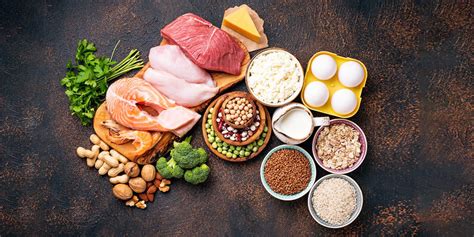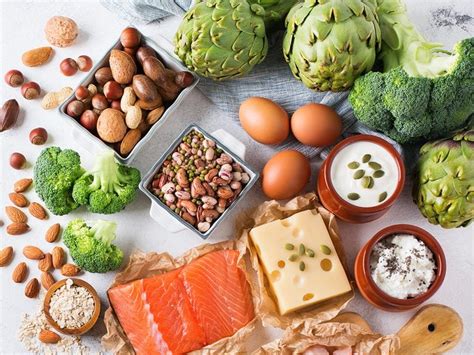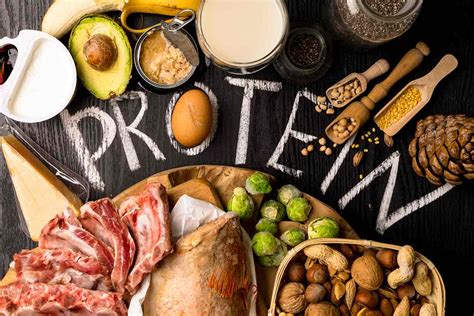Optimal daily protein for muscle growth and recovery?

Understanding the Crucial Role of Protein
Protein is often hailed as the king of macronutrients, especially when it comes to physical performance, muscle development, and repair. Composed of amino acids, these building blocks are essential for countless bodily functions, from enzyme production to hormone regulation. For those engaged in resistance training or intense physical activity, protein’s role becomes even more critical, directly impacting muscle protein synthesis (MPS) – the process by which muscle cells repair and rebuild, leading to growth and increased strength.
How Much Protein Do You Really Need?
The recommended daily allowance (RDA) for protein for the average, sedentary adult is 0.8 grams per kilogram of body weight. However, this figure is primarily designed to prevent deficiency, not to optimize muscle growth or athletic performance. For individuals actively pursuing muscle gain or significant physical recovery, these requirements increase substantially.
Current scientific consensus suggests that athletes and active individuals should aim for a protein intake between 1.6 to 2.2 grams per kilogram of body weight per day (g/kg/day). Some studies even support a slightly higher intake, up to 2.5 g/kg/day, particularly during periods of intense training, caloric deficit for fat loss, or for older adults trying to combat sarcopenia (age-related muscle loss).

Optimizing Protein Timing and Distribution
Beyond the total daily amount, how you distribute your protein intake throughout the day can also play a significant role in maximizing MPS and recovery. Research indicates that spreading protein consumption evenly across 3-5 meals or snacks, with each providing 20-40 grams of high-quality protein, is more effective than consuming one or two large protein-heavy meals. This strategy ensures a sustained elevation of amino acids in the bloodstream, continuously signaling muscle cells to initiate repair and growth.
Consuming protein around your workouts is also a popular strategy. While the concept of an ‘anabolic window’ immediately post-exercise has been broadened, consuming protein within a few hours before or after training can be beneficial. A pre-sleep protein dose, often casein (a slow-digesting protein), can also support overnight muscle recovery and synthesis.

The Importance of Protein Quality and Sources
Not all proteins are created equal. Protein quality is determined by its amino acid profile and digestibility. Complete proteins, which contain all nine essential amino acids (EAAs) that the body cannot produce on its own, are superior for muscle growth. Animal sources such as lean meats, poultry, fish, eggs, and dairy (whey and casein) are excellent complete protein sources.
For those following plant-based diets, combining various plant protein sources throughout the day (e.g., legumes with grains, nuts with seeds) can ensure a complete EAA profile. Soy, quinoa, and certain protein blends are also complete plant-based options. Focusing on whole, unprocessed foods should always be a priority, but protein supplements like whey, casein, or plant-based proteins can be convenient tools to meet higher daily requirements.

Special Considerations and Individualization
Individual protein needs can vary based on several factors:
- Age: Older adults may require higher protein intake (up to 1.2-1.5 g/kg/day) to overcome anabolic resistance and preserve muscle mass.
- Energy Deficit: During periods of caloric restriction for fat loss, a higher protein intake (closer to 2.0-2.5 g/kg/day) is crucial to preserve lean muscle mass while losing fat.
- Training Intensity: More frequent and intense training sessions may necessitate higher protein consumption for adequate recovery.
- Dietary Preferences: Vegetarians and vegans may need to be more mindful of combining protein sources and potentially consume slightly higher overall amounts to account for lower bioavailability from some plant proteins.

Conclusion: Consistency is Key
Achieving optimal daily protein intake is a cornerstone of any effective muscle growth and recovery strategy. While specific numbers can vary, a general guideline of 1.6 to 2.2 g/kg/day, distributed consistently throughout the day from high-quality sources, offers a solid foundation for most active individuals. Remember that these are guidelines, and listening to your body, monitoring your progress, and consulting with a nutrition professional can help you fine-tune your approach for the best results.









